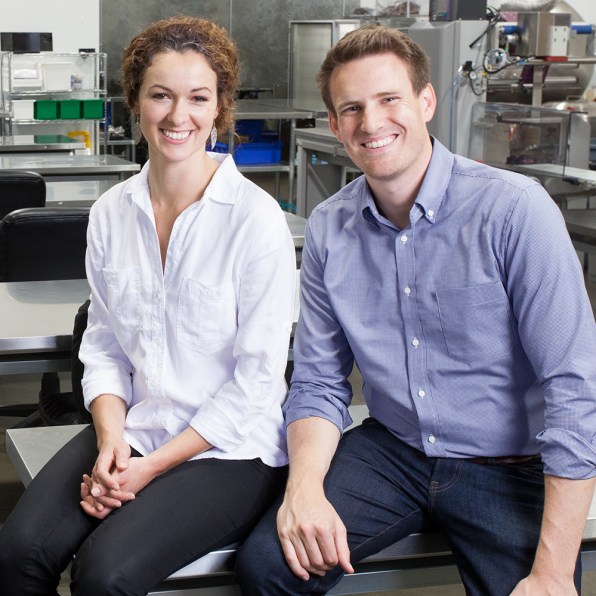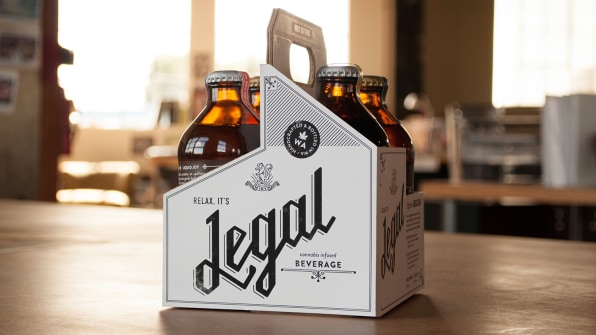I Can T Roll a Joint for My Life
Linda Sands, a San Francisco mother who asked that I not use her real name, went on a resort vacation with her family this summer and took along a packet of THC-infused gummy candies. Each evening during the proverbial cocktail hour, the 35-year-old lawyer went to her room and sliced off a tiny wedge of the lozenge-shaped gummy, waited 20 minutes, then enjoyed the mildly soothing effects. She described them as in the same league as "half a beer." Neither her three-year old son, nor anybody else, was the wiser.
"Smoking just has a stigma attached to it," she says. "With edibles, there's no smell, no ashtray, no standing outside."
Sands's experience is becoming more common. Vaporizing is on the rise as a healthier and more discreet alternative to smoking. And some people are even getting into "dabbing"–the trend of inhaling ultra-high sticky cannabis extract that's been melted into vapor. But the numbers from Colorado show that the way to many peoples' hearts is still through their stomachs–edibles currently account for as much as half of all cannabis-related sales in Colorado. Surveys show that many of those buyers are new or casual users, looking for a low-barrier-to-entry method of consuming pot: one that doesn't require special equipment, won't put them in compromising situations in front of their kids, and can even be easily stowed in luggage without looking suspicious.
Since New York Times columnist Maureen Dowd made waves with her spring column about getting too high on pot chocolate, edibles makers have better come to understand the newbie consumer, and are tweaking their products and marketing accordingly. Sleek packaging and lower dosages are meant to appeal to the mainstream consumer. Some are even conducting scientific research to deliver different types of highs.
Packaged food and beverages are also a more familiar and attractive proposition to investors. Patrick Rea, founder and manager of Denver-based MISO Capital, a cannabis industry venture fund, says he sees edibles as more promising than even marijuana growing or retail operations. "Marijuana is a commodity, like wheat, corn, or soybeans," he says. "With edibles, you can create a brand story, trademark a name, have secret formulations that can be intellectual property." In other words, edibles are a good investment.
With pot legalization on the horizon across the U.S., the future of marijuana may be in clearly labeled, low-dosage, and family-friendly weed-infused food and drink. Ironically, considering the pot brownie's stony, tie-dyed legacy, edibles may be turning into the most mom-friendly way of getting high. Call it the Lunchables of legalization.
Four years ago, San Francisco Bay Area residents Kristi Knoblich and Scott Palmer started Kiva Confections: a line of high-quality dark and milk chocolate bars and chocolate-covered espresso beans infused with hash oil. The candy has earth-toned, eco-chic packaging that would be right at home on the shelves of Whole Foods. It's tested for potency, and is clearly labeled so you're not left guessing how much you eat. (One square of chocolate contains 10 milligrams of THC, roughly the equivalent of smoking one joint. One espresso bean is 5 milligrams.) Sold in medical marijuana dispensaries throughout the state, Kiva is now one of the most popular edible brands. (Kiva doesn't give out sales figures, stating that, per California medical marijuana law, it operates as a nonprofit.)

"A lot of the other edibles companies are targeting the 18-25 crowd, but I don't think that's necessarily the market," says Palmer. "I think it's 30-50 [percent] parents with full-time jobs and kids." Knoblich describes them as "risk averse."
Dixie Elixirs recently launched a low-potency watermelon soda called Dixie One that contains only 5 milligrams of THC. (Here is another look at Dixie's success.) Joe Hodas, the company's chief marketing officer, says the drink has done exceptionally well in a cannabis shop on the 16th Street Mall, a pedestrian promenade popular with tourists. The assumption he and others make is that tourists are more likely to be novices or casual users.
The Washington-based Mirth Provisions makes low-dose sparkling sodas called "Legal" in flavors like Rainier Cherry and Lemon Ginger. Adam Stites, the company's founder, plans to launch a line of cold-brewed coffee next.
"Everyone's comfortable with the concept of: Let's get together and have a cold beer or glass of merlot," says Stites, explaining why he decided to make beverages. "Asking the boss to step out on the deck and smoke a joint, we just don't have that."

The variety of edibles already on the market can be overwhelming. At a typical medical marijuana dispensary in California, you can find everything from savory Chex Mix to Stroopwaffle, and in Colorado, not surprisingly, there's more. The company Medically Correct, for instance, offers 12 different candy bars, including a dark chocolate-raspberry variety containing roasted habanero peppers.
And this is just the beginning. Marijuana has been historically understudied, as it's still considered an illegal "Schedule 1" narcotic under federal law. But now some entrepreneurs are investing in their own research to better understand the chemical compounds in marijuana and their specific effects on the body. The hope is that once the compounds are better understood, producers can tweak their recipes to target different consumers, not unlike Nivea creating various face cream formulas for different skin types.
The first evidence of this is in a trendy new category of edibles that contain mostly CBD, a secondary cannabinoid in marijuana that unlike THC, has reputed therapeutic effects, without producing the mental high. Medically Correct currently makes a CBD-rich energy bar, which the company says is a best-seller. Kiva Confections is also currently developing a CBD product.
"CBD has great potential for anyone who wants the therapeutic effects without getting your wheels spinning, necessarily," says Knoblich. So, in other words, if you don't like pot because it makes you paranoid, this could be the version for you.
Jon Cooper is the CEO of a startup called Ebbu, which is working with a team of scientists to create a specially formulated, branded cannabis concentrate. Among other things, he hopes to sell it to edibles makers to use in their products.
"In the future when you walk into a restaurant, a waiter or waitress will walk over and say, 'Do you want something to make your evening more enjoyable?' And one of those options would be cannabis," says Cooper. "But they're not going to bring out a dabbing rig and a blowtorch to do dabs!"
At least not at the kind of restaurant you'd take your kid to.
I Can T Roll a Joint for My Life
Source: https://www.fastcompany.com/3035160/rolling-a-joint-kid-stuff-getting-high-the-grown-up-way
0 Response to "I Can T Roll a Joint for My Life"
Post a Comment